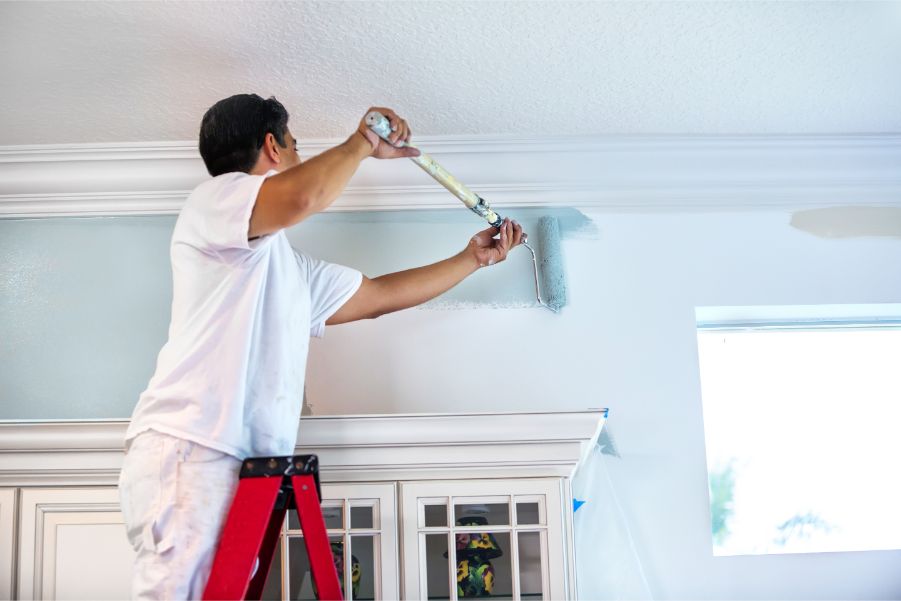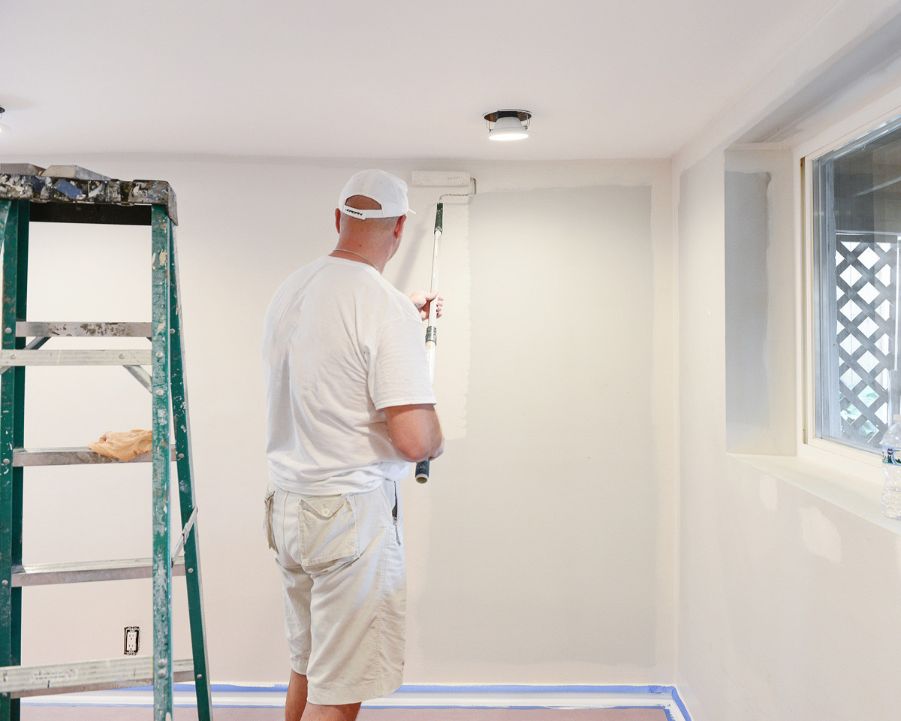Is House Painting a Good Career?

The market for painting businesses in the U.S is worth $37 billion, meaning there is a lot of opportunity in the painting industry. According to the Ibis World Report, there are currently over 400,000 people working in the painting industry in the U.S. And Zippia says there is a 6% job growth rate.
Now whether you are getting started, or looking to start something new, there are a number of ways to get involved in painting as a career: starting your own business, gig and contractor work, purchasing a franchise, or joining a platform that feeds you leads or jobs. And painting can pay! According to Zippia, the best 5 states for pay to be a painter are
- Alaska – $57,560
- Hawaii – $56,030
- New Jersey – $55,870
- Massachusetts – $54,810
- Washington, D.C. – $53,420
Whether you learn painting on the job, as most house painters do, or have an apprenticeship, you will find the projects look more or less the same. So let’s dive into what professional residential painters do in the day-to-day.
What Do Professional Painters Do?
At the most basic level, painters apply paint to commercial and residential structures. But they also help clients pick the best paint, including color and finish, by taking into consideration.
- The client’s desires
- Durability of the product
- Handling ease
- Application method
What Does a Day in the Life Look Like?
Professional painters do a wide range of tasks. They may paint existing homes or put the finishing touches on a construction job. Typically, their role is to:
- Cover and protect surfaces
- Fill openings and cracks with fillers like caulk or putty
- Paint walls, buildings, and structural surfaces
- Smooth surfaces with sandpaper, sanding machines, etc.
- Clean the job site when the job is complete
What Kind of Knowledge Do You Need?
Like any professional tradesperson, painters who want to succeed at the job need basic training, either through an employer or an organization, such as an apprentice program or union. You’ll need to know:
- Government regulations
- Project- and business-management concepts
- Customer service
- Communication skills
- Engineering and technology basics, including computer skills
These skills can help you advance from painter to foreman or superintendent if that path interests you:
- Effective listening skills
- Problem-solving
- Basic knowledge of chemistry, math and color theory
- Materials handling – paints, solvent, tools, and materials
What About Physical Skills?
Painting requires hours of demanding physical activity every day. To succeed, you’ll need:
- Excellent hand-eye coordination
- Good physical condition and endurance
- Good balance
- No allergies to dust, solvents or paint
- Good vision
What Personality Makes a Good Painter?
You may be wondering what personality has to do with painting. This is as important a quality as your training and physical abilities. You’ll be representing your company and working with others daily. That makes certain personality traits important, such as:
- Good personal hygiene
- Proper behavior and attitude on job sites
- Dealing with demanding customers professionally and respectfully
- Interpreting instructions well
- Teamwork
- Time management
- Dependability
Do You Need Special Training?
Painters who are educated in the field can make more money and progress farther than those who aren’t. Your training could include a professional apprenticeship and additional certifications, with both classroom time and on-the-job training. There are several upsides to choosing this type of training:
- Credentials from accredited training programs and unions are recognized anywhere in the country, meaning you can get a job anywhere you move.
- It’s more affordable to learn to paint than it is to get a college degree. You don’t have to spend thousands of dollars – or thousands of hours – to learn this trade.
- When you’re ready to join the workforce, you won’t be stuck with student loans.
There’s a shortage of people with training in the trades, and demand for trade jobs is huge – an estimated three million trade jobs in the United States sit unfulfilled. Tradespeople can make an excellent wage, with benefits and pension, as well as have training paid for by their employer. Being a professional painter offers a viable career option with many rewards.



